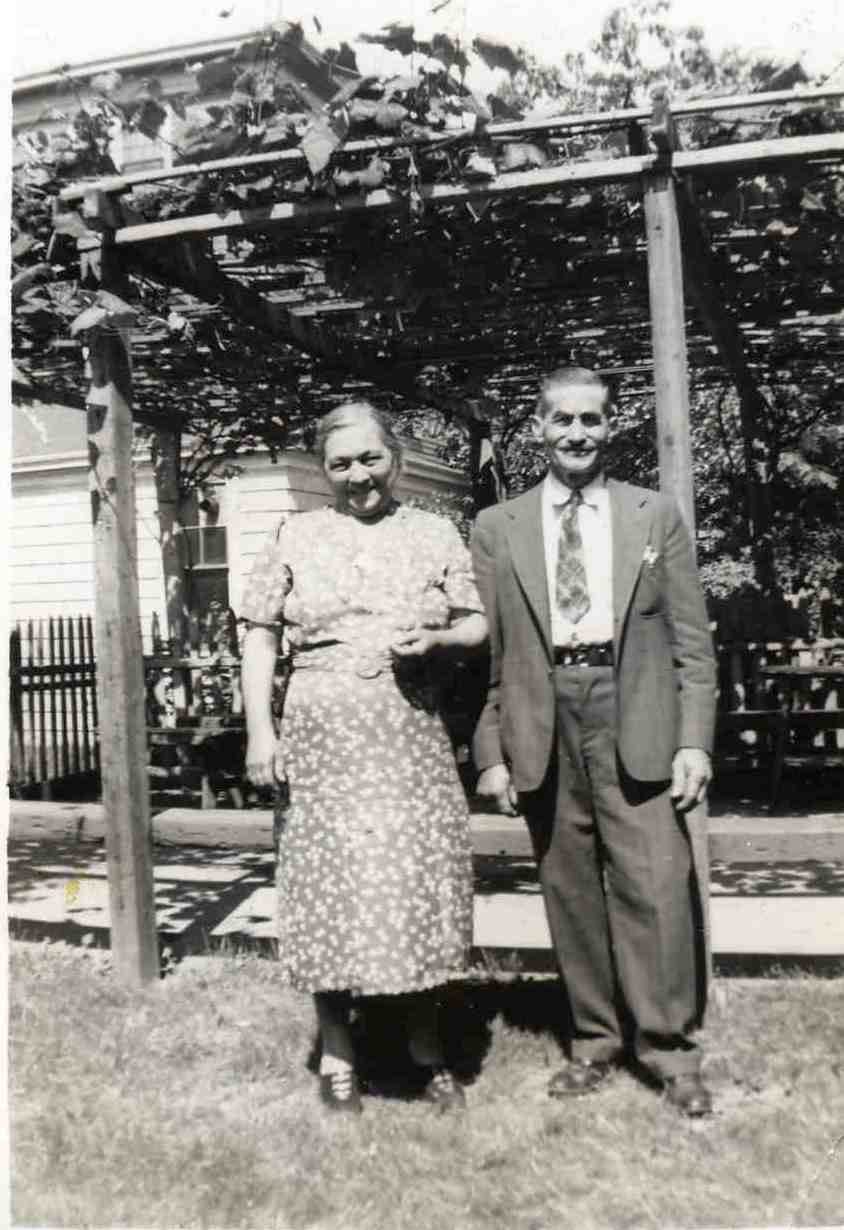Hands Like Papa’s
I felt like Hammett’s hero, Sam Spade, uncovering a clue.
I grew up in a traditional Italian household. My family lived one floor above my grandparents, while my aunt’s family resided one floor below in our three-decker house. I cherished the Italian traditions and customs, but since I was so young when my grandparents passed away, many of those traditions were lost as our family became more Americanized.
There is one record that rekindled some memories.
I found six years of my grandfather’s diaries. Most of what he recorded was his day’s pay, never more than one dollar.
I remember those family traditions of demanding work, particularly those of my grandfather, who, after toiling all day at hard labor, retreated to his large garden to gently tend to his joys with the setting sun as his guide.
One day, I saw him doing something different. He was laying a slab of cement in the rear corner.
Here is the story that came to mind.
Aunt Della blurted, “Edward, you have hands like Papa’s.” I am sure she meant it as a compliment, because she loved her father and respected how hard he worked for his family, but I would never have the hands of a man who did manual labor as he did.
Papa’s hands were heavy, gnarly, crooked and callused. At ten, mine were soft, clean with trimmed nails and, except for a small knob on the farthest digit of my second finger where I choked the pen to write, had no calluses.
Perhaps Grandpa’s hands were trying to tell me something of what I might or should be one day, as his were the hands of work, hard work — grubby, dirt under the nails, bruised with cuts, and with brown spots on the back resembling the map of Europe.
I watched him make cement one day as he was preparing to patch a square under our grape arbor. As I watched him stirring the cement—sand, water, stones — mixing, testing, eventually pouring, I was transfixed because I knew this slurry would toughen to indestructibility. And I knew that just before it hardened, he might let me scratch my name in his masterpiece.
I looked in his toolbox: a leather bag, cracking and crusted with dust, hardened plaster, and cement. Grandpa was a cement worker in the days of the Depression, given a chance to work by President Franklin Roosevelt’s Works Progress Administration. There was more in that box: a hammer, a trowel, and a spade to smooth, set, and define cement.
“Grandpa, how do you know how to do all this stuff — make cement, build a shed, plant a garden, bury a tree?”
He turned his head and looked up from his kneeling position. “I learna what I haffa ta. I makea what I hafta makea to helpa the family. You no wanna do this, Ed-a-wood. You wanna go ta the skool. Looka.” He put down his tools and turned his hands up. His palms were scarred and as tough as the cement he was making. His fingers were bent. Traces of cement had seeped into the cracks.
“Thisa is from harda work Ed-a-wood. I like-a to do it. But you. You must-a stay inna the skool. Giva me your hand.” He took my hand, spread my fingers, and pushed it into the wet cement that was cold and almost firm even on this warm day. He held it there for a moment. He released it. My hand was imprinted into the cement that, when dry, would be there forever on a slab in the rear yard under the grapevine. My palm was covered in gray and looked a little like my grandfather’s.
The cement slab was the only section under the arbor with no grape stains and the only one with a handprint, mine. Under it was scratched, “Edward, 1949.”
“Thanks, Grandpa.”
The other day, I looked at my hands. They were still soft, smooth, a reflection of a lifetime in one school or another. I turned them over and looked at the backs. Prominent veins, spots, and wrinkles now crept into what once were smooth and unblemished. They bruise easily, and the bruises turn brown and stay. The map I saw was of Italy. My knuckles matched the map and looked like mountains. The Apennines, maybe?
Well, now, at least on the dorsal sides, I have hands like Papa’s, not gnarled or crooked, just exposed and aged.
Recently, I strolled to the back of that yard after asking permission from the lovely owners. The grape arbor was gone. Cars dominated the plot. I stumbled around the front of a car, tight against the fence.
There was a dense covering of mud and leaves, layers of which I pushed away until I reached the cement. Nothing written, but wait, was that the palm of a hand or a finger? I felt like Hammett’s hero, Sam Spade, uncovering a clue. Should I sample it for DNA? Nah.
I have the memory. I have hands like Grandpa’s. Sorta.



Late response to a an evocative recollection between father and son. There's something primal in a father and son relationship. I always received nurturing narratives from my mother, but my father was more enigmatic in sharing his thoughts. I learned about his view of life from his deeds and occasional insights which were sparse, but authentic. I thought my job was to interpret what was not said.
Such insight from our grandparents, who valued the education they never had! We lived with my grandmother on Justice Street. She never went to school. Her greatest joy was seeing the successes of her grandchildren! I will never forget her coming in the car to drive me back to college in a snowstorm, and being told that she would need to stay overnight in the dorm because it was too bad to drive home. In Italian, she said, "Now I go to college!"